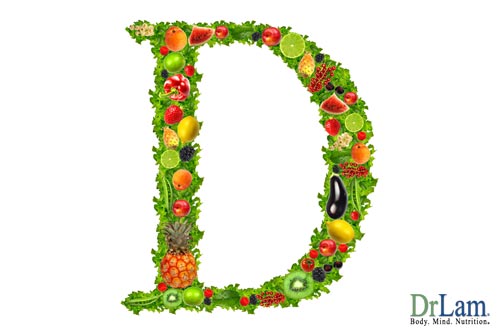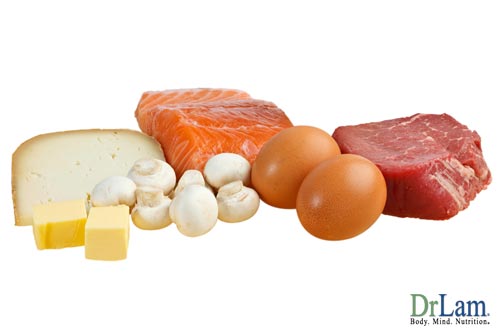
 Vitamin D benefits can be used to prevent everything from the common cold to cancer. Just how effective is it really? What are the vitamin D benefits on health? As it turns out, whether it can actually cure disease is still up in the air, but we now know that vitamin D deficiency does increase the risk of many diseases.
Vitamin D benefits can be used to prevent everything from the common cold to cancer. Just how effective is it really? What are the vitamin D benefits on health? As it turns out, whether it can actually cure disease is still up in the air, but we now know that vitamin D deficiency does increase the risk of many diseases.
Initial Vitamin D benefits were discovered in the early 1900s when doctors were trying to find a cure for rickets, which became virtually nonexistent when the US started adding the vitamin to milk. In the past ten years or so, however, it’s made a comeback, thanks to increased use of sunscreen along with other factors. This is prompting researchers to reevaluate recommendations and to evaluate how vitamin D affects the development of disease, particularly heart disease, diabetes, and cancer.
A study conducted at Johns Hopkins University and highlighted in a WebMD article found that inadequate vitamin D and estrogen increased the risk of heart disease and osteopenia in men. Research is currently underway to find out if the same results hold true for women.
A number of studies have linked low levels of vitamin D to diabetes, both type 1 and 2. A study conducted in Finland and involving 10,000 children over the course of 30 years found that those who got at least 2,000 units per day of this vitamin reduced their risk of developing diabetes by 80%.
Various studies have suggested that vitamin D may reduce the risk of certain cancers, particularly colon, breast, and prostate. A study conducted in Nebraska found that women who took daily supplements of vitamin D and calcium after menopause had a lower risk of cancer over the four years of the study.
Not all studies support these findings, however. One analysis of more than 16,000 survey respondents concluded that vitamin D intake did not influence the development of cancer.
Some scientists think vitamin D deficiency may also play a role in the development of other diseases, including hypertension, autism, Alzheimer’s, swine flu, and multiple sclerosis, but clinical evidence is currently limited with regard to these claims.
 Current recommendations are set at 400 IU for children under a year, 600 IU for children over a year and adults up to age 70, and 800 IU for elderly adults over the age of 70. It is worth noting, however, that many studies are conducted using much higher doses of 1,000 to 2,000 IU per day.
Current recommendations are set at 400 IU for children under a year, 600 IU for children over a year and adults up to age 70, and 800 IU for elderly adults over the age of 70. It is worth noting, however, that many studies are conducted using much higher doses of 1,000 to 2,000 IU per day.
Vitamin D benefits are special as vitamin D is the only vitamin that the body is able to produce simply by exposure to sunlight. Due to the risk of skin cancer, however, the American Academy of Dermatology does not recommend relying on sun exposure to meet your needs for vitamin D.
Good food sources of vitamin D include tuna, salmon, mackerel, sardines, and foods such as milk and cereal that are fortified with the vitamin. If your diet is low in these foods, you may also wish to add supplements, but be careful not to exceed the upper limits of 2,000 IU for adults or 1,000 IU for infants to avoid toxicity.
Getting enough Vitamin D and avoiding deficiency is doubly important for those in adrenal fatigue. Vitamin deficiencies in concert with adrenal fatigue increase the risk of associated conditions such as recurrent infections and flu, mitochondrial disease and slow down in hormonal synthesis. These conditions increase stress on the body and worsen the adrenal fatigue, which forms a downward spiral and makes it increasingly difficult for the body to deal with all of its problems. To avoid this scenario, the body needs to be supported by the proper intake of nutrients including Vitamin D.
 Now, for most people getting some sun to help with Vitamin D production in the body is not a problem, but this is not the case for those suffering from advanced Adrenal Fatigue who may be too sensitive to direct sunlight. They often suffer from temperature dysregulation. Exposure to sunlight can trigger adrenal crashes. Supplements may also not be an option for those whose bodies exhibit paradoxical reactions to nutritional supplementation. In cases such as these we encourage proper diet as the first step to optimal recovery; foods such as salmon and other oily fish are rich in Vitamin D on top of being healthy sources of protein and essential fatty acids. Once the body is strong enough to handle the stimulation, supplementation of Vitamin D and other micronutrients can be added to the recovery protocol. For healthy people, vitamin D is usually taken in the morning; but in the case of Adrenal Fatigue, this may backfire and other times of the day may be more appropriate. Some trial and error may be required as every person can react differently.
Now, for most people getting some sun to help with Vitamin D production in the body is not a problem, but this is not the case for those suffering from advanced Adrenal Fatigue who may be too sensitive to direct sunlight. They often suffer from temperature dysregulation. Exposure to sunlight can trigger adrenal crashes. Supplements may also not be an option for those whose bodies exhibit paradoxical reactions to nutritional supplementation. In cases such as these we encourage proper diet as the first step to optimal recovery; foods such as salmon and other oily fish are rich in Vitamin D on top of being healthy sources of protein and essential fatty acids. Once the body is strong enough to handle the stimulation, supplementation of Vitamin D and other micronutrients can be added to the recovery protocol. For healthy people, vitamin D is usually taken in the morning; but in the case of Adrenal Fatigue, this may backfire and other times of the day may be more appropriate. Some trial and error may be required as every person can react differently.

